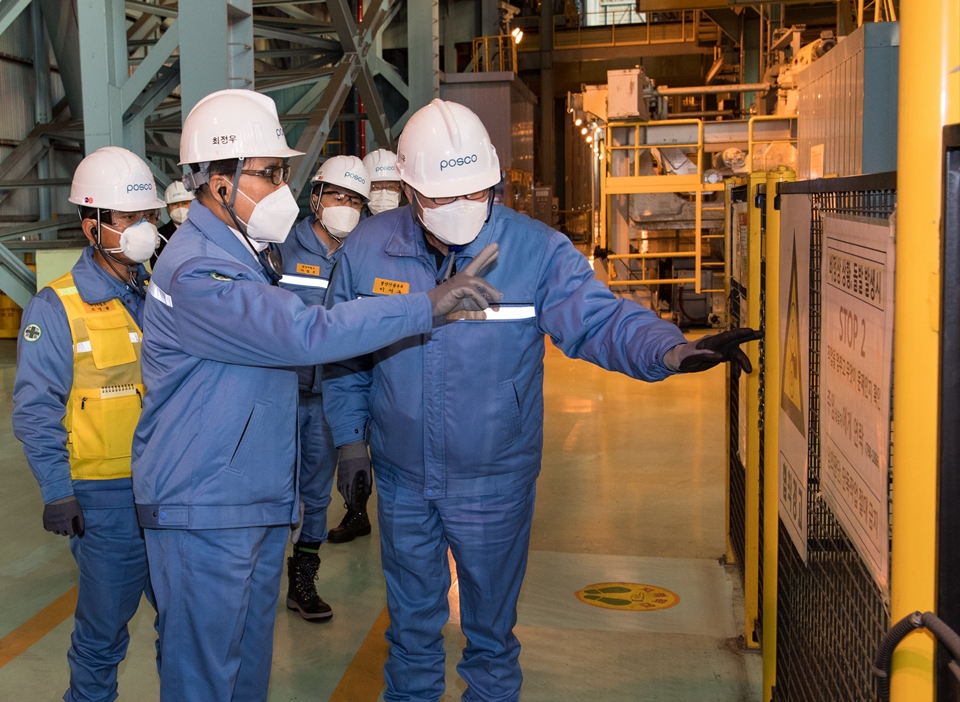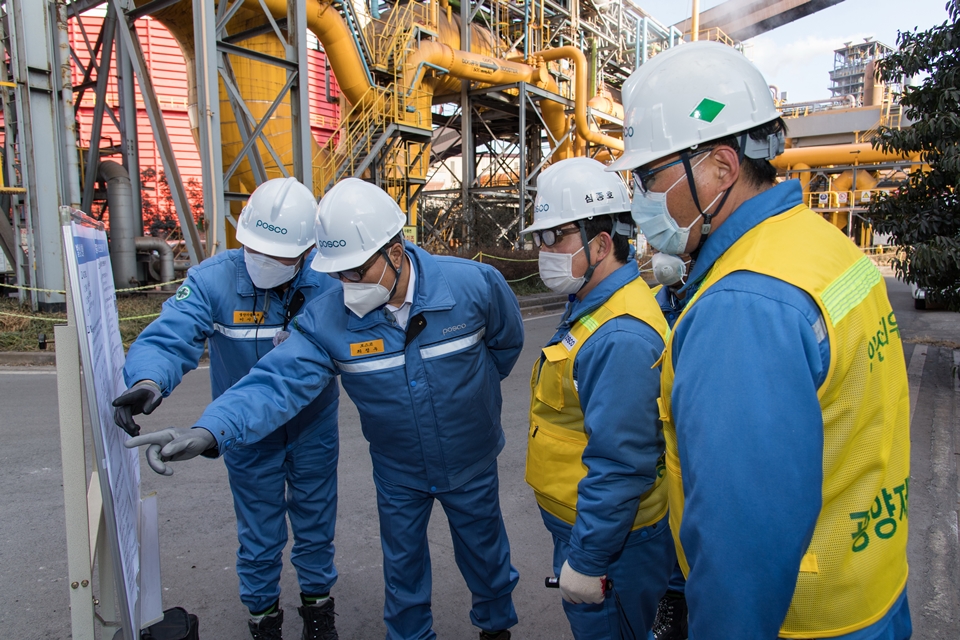l POSCO CEO Jeong-Woo Choi emphasizes the importance of safety at the recent group management meeting and mentions, “Safety comes before production”
l Choi also states, “Safety-related investment should be a top priority and executed promptly through fast track”
l POSCO plans to implement 6 Major safety measures: establishing a safety-first process, implementing the right to reject operation, setting up a safety report system, expanding safety smart infrastructure, improving safety management support for business partners, and strengthening safety education for employees
POSCO CEO Jeong-Woo Choi emphasized once again that “safety” is prioritized over production, and that “safety” is the top priority in all business activities this year.
CEO Jeong-Woo Choi devoted most of his statements at the recent group management meeting to emphasize “safety”. He said, “Workers can request to cease operation if they are having difficulties securing safety or because of other physical or emotional factors. It should be guaranteed as the right of the employees.” He also urged this implementation to be guided to all employees and instructed to be executed thoroughly.
He added, “If production capacity is short because of the safety measures, employees should not be held responsible, but rather rewarded.”
Choi went on, “We need to improve the system so that relevant departments can take immediate actions in case someone reports on safety issues. We must also make sure that safety-related investments should be prioritized and executed promptly through fast track.”
At the beginning of 2021, CEO Choi had emphasized the importance of safety by making safety a top priority and making the workplace a better place for a satisfactory life through the New Year’s speech and a visit to the steelworks.
Putting “safety” as a top priority in management policy, POSCO has declared to carry out 6 Major safety measures — 1) establishing a safety-first process instead of production-first, 2) implementing the right to reject operation, 3) setting up a safety report system, 4) expanding safety smart infrastructure, 5) improving safety management support for business partners, and 6) strengthening safety education for employees
Accordingly, POSCO reaffirmed the policy of prohibiting all maintenance and repair work during facility operation, except in unavoidable cases, to put safety as the priority of steelworks production operation. In order to ensure the safety of workers, POSCO actively guided the right to stop work and allowed them to resume work after obtaining the consent of the workers.
A new safety report system was also introduced so that all workers within the steelworks, including employees of partner companies, can make reports in real-time through an application if they are requested to work in unsafe environments or find elements that threaten their safety.
Also, POSCO decided to further secure safety-related smart infrastructure. The company vowed to create sites without any safety blind spots with the supply of detachable “portable CCTV” and “Body Cam”. POSCO will also introduce “Safety Ball,” an item, which can identify the inside of a confined area before any operation.
On February 1, the Cooperative Safety Support Section was also established to provide dedicated support for the safety management of partner companies. The Section is in charge of various tasks that include relieving risk factors of partner companies, supporting safety operations, and providing safety information.
Safety training for POSCO employees will be further strengthened as well. The idea is to expand the use of safety UCC so that employees can easily understand safety rules on sites, conduct systematic training by external safety instructors, and foster risk management experts specializing in the steelworks process. POSCO will also establish a safety technology academy to support education programs that aim to improve safety capabilities.
Meanwhile, since 2018, POSCO has invested 1.315 trillion KRW to improve steelworks facilities, such as replacing aged facilities and supplementing closed facilities, establishing a safety organization and recruiting safety experts, strengthening support activities for the safe operation of business partners, and reinforcing inspections for hazardous facilities. Last December, the company had announced special measures for safety management and to invest an additional 1 trillion KRW over the next three years from 2021.

▲ POSCO CEO Jeong-Woo Choi visited the steelworks on January 7 and 8 to encourage employees and emphasized that safety is of top priority to create a workplace for a happy life

▲ POSCO CEO Jeong-Woo Choi visited the steelworks on January 7 and 8 to encourage employees and emphasized that safety is of top priority to create a workplace for a happy life
